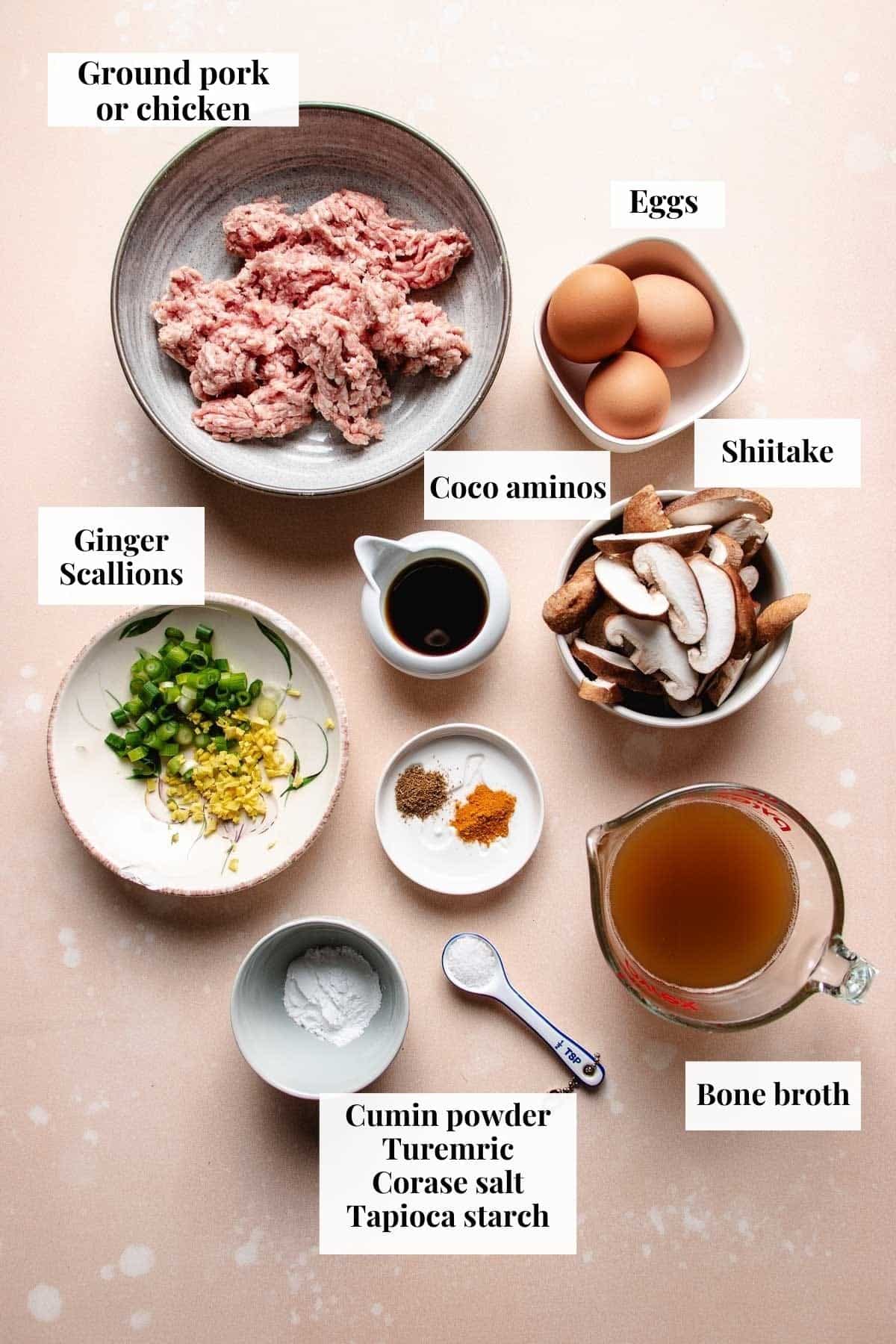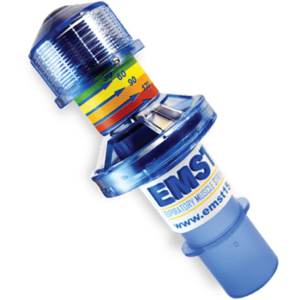Egg drop soup typically contains low calories and moderate protein. Its nutrition value often includes various vitamins and minerals.
Egg drop soup, a staple in Chinese cuisine, offers a comforting blend of chicken broth, silky egg ribbons, and spices entwined in a warm and savory concoction. Known for its simplicity and quick preparation, it’s a go-to appetizer in many Asian eateries and homes.
This nutrient-rich broth serves as a source of protein due to the eggs, and it can also provide hydration thanks to its liquid content. Whether you’re enjoying a bowl before a main course or sipping it to soothe a cold, egg drop soup is both a nourishing and delightful choice. Ideal for those watching their calorie intake, it also can be a canvas for additional ingredients like vegetables or tofu, adding to its nutritional profile.
Introduction To Egg Drop Soup
Egg Drop Soup dances on the tongue with its savory warmth, inviting comfort with every spoonful. Known for its simple elegance, this soup claims a special place in Chinese cuisine. Packed with nutrients, the dish is both a culinary delight and a nutritious choice. It combines traditional flavors with the wholesome goodness of eggs, making it a favorite in many households. Let’s dive into the appeal of this classic dish and explore the basic ingredients that make it so nourishing.
The Appeal Of This Classic Chinese Dish
Egg Drop Soup, a staple in Chinese cooking, wins hearts with its versatility and soul-soothing properties. Loved by many, it serves as a light appetizer or a companion to a hearty meal. Its simplicity allows it to pair well with complex dishes, providing a gentle balance of flavors. Nutritionally, the soup offers a source of high-quality protein and essential nutrients through its primary ingredient, eggs. The golden ribbons of egg in a clear, savory broth make it visually appealing and a joy to savor.
Basic Ingredients In Egg Drop Soup
The beauty of Egg Drop Soup lies in its simplicity. The foundation of the soup is a clear and flavorful broth, often chicken or vegetable. Into this steaming broth, a mixture of beaten eggs is slowly poured, forming delicate strands. To enhance the soup’s flavor and nutritional profile, a variety of additional ingredients may be included:
- Green onions add a pop of color and a mild, peppery taste.
- Cornstarch aids in thickening the broth for a desirable texture.
- Seasonings such as salt, pepper, and sometimes ginger or garlic, contribute depth to the taste.
In terms of nutritional value, this simple combination offers protein, vitamins, and minerals. It can also be customized to meet dietary needs by adjusting ingredients. The result is a warm, comforting bowl that is both delightfully tasty and wonderfully beneficial for health.

Credit: www.amazon.com
Unpacking The Nutritional Content
Egg Drop Soup not only warms your heart but also offers you a blend of nutrition. Just one bowl provides energy, protein, and essential nutrients. Let’s dive into what makes this comforting dish both delicious and nutritious.
Caloric Content Breakdown
This classic soup is low in calories. A standard serving, which is about one cup, typically contains 50 to 100 calories.
- Broth-based soups are lighter on calories.
- Add-ins like vegetables or tofu can increase calories slightly.
Macronutrients: Proteins, Fats, And Carbohydrates
Egg Drop Soup is a balanced dish when considering macronutrients.
| Nutrient | Amount |
|---|---|
| Protein | 4-6 grams |
| Fats | 2-4 grams |
| Carbohydrates | 4-8 grams |
Proteins come mostly from eggs, providing strength for muscles.
Fats add richness and are good for energy.
Carbohydrates in the soup can fuel your body through the day.
Vitamins And Minerals Galore
Imagine a bowl of warmth filled with nutrition! Egg drop soup, a comfort food favorite, packs more than just flavor. It’s a treasure trove of vitamins and minerals. These nutrients are key to our body’s health. Let’s dive into the details of what makes Egg Drop Soup not just delicious, but also nourishing.
Essential Vitamins Present In Eggs
Eggs are a powerhouse of nutrients. They contain several essential vitamins that our bodies need to function properly. Check out these vitamins found in eggs:
- Vitamin A: Good for the eyes and the immune system.
- Vitamin D: Helps in bone health and immune function.
- Vitamin E: Works as an antioxidant, protecting our cells.
- Vitamin B12: Essential for brain health and creating DNA.
- Riboflavin (B2): Helps break down food into energy.
- Folate (B9): Important for new cell creation.
Minerals Contributed By Broth And Vegetables
Broth and vegetables enrich the soup with minerals. Below is a list of minerals in egg drop soup:
| Mineral | Benefit |
|---|---|
| Calcium | Supports bones and teeth |
| Iron | Crucial for blood health |
| Magnesium | Maintains muscle and nerve function |
| Potassium | Helps balance fluids in the body |
| Zinc | Strengthens the immune system |
Together, the eggs, broth, and vegetables deliver a suit of essential nutrients. These nutrients work to keep your body in tip-top shape. Enjoy a bowl of egg drop soup and give your body the gift of wellness.

Credit: www.the-girl-who-ate-everything.com
Health Benefits
Egg drop soup is not only a comforting meal but also packs a punch of nutrition. This traditional Chinese soup is simple, with broth, eggs, and spices as its main ingredients. Let’s dive into the health benefits that this delicious dish offers.
Supporting Muscle And Bone Health
The high-quality protein in eggs is crucial for muscle repair and growth. Protein also plays a role in bone health. Each bowl of egg drop soup helps maintain strong muscles and bones.
| Nutrient | Benefit |
|---|---|
| Protein | Supports muscle repair |
| Calcium | Strengthens bones |
Boosting The Immune System
Egg drop soup contains various nutrients that help in strengthening the immune system. A strong immune system fights off sickness. Here are some vitamins found in this soup:
- Vitamin A: Protects against infections
- Vitamin B6: Promotes a healthy nervous system
- Vitamin C: Antioxidant that boosts immunity
Weight Management
Egg drop soup provides essential nutrition without packing on the pounds. It’s an excellent choice for those focusing on weight management. Let’s dive into the benefits of this light, yet filling soup.
Low In Calories
A bowl of egg drop soup is low in calories. This means you can enjoy a satisfying meal without worrying about consuming too many calories. Here are the calorie specifics:
- One cup of egg drop soup contains approximately 70 calories.
- It’s mostly made of water, which has no calories.
- Egg protein helps keep the calorie count low while providing energy.
High In Satisfaction
Despite being low in calories, egg drop soup keeps you feeling full. The key elements contributing to this satisfaction include:
- Dietary fiber from vegetables, if added.
- Protein from the eggs, which is known for its satiating effect.
- A warm broth that helps satisfy hunger cues.
Incorporating Egg Drop Soup Into A Weight Loss Diet
Adding egg drop soup to your diet can be a smart move for weight loss. Use these tips for the best results:
- Enjoy egg drop soup as a starter to reduce the intake of higher-calorie foods.
- Incorporate it as a main dish with added vegetables for a nutrient-dense meal.
- Be mindful of sodium content, choosing low-sodium broths when possible.
Considerations For Dietary Restrictions
Egg drop soup, a staple in Chinese cuisine, blends simple ingredients to create a comforting dish. It’s crucial to adapt the recipe for those with specific dietary needs. This guide covers how to modify egg drop soup for gluten-free and vegetarian diets, ensuring everyone can savor its warm, nourishing goodness.
Adjusting For Gluten-free Needs
Typical egg drop soup contains soy sauce, which often has gluten. To make it gluten-free, consider these swaps:
- Gluten-Free Soy Sauce: Choose Tamari or a certified gluten-free soy sauce.
- Cornstarch: Verify it’s from a gluten-free facility to avoid cross-contamination.
- Broth: Pick homemade or certified gluten-free stock.
With these tweaks, the soup becomes a safe option for those avoiding gluten.
Modifying For Vegetarians
Egg drop soup traditionally includes chicken broth, which doesn’t work for vegetarians. To make a vegetarian version:
- Vegetable Broth: Substitute chicken broth with a rich vegetable stock.
- Tofu: Add tofu for extra protein, mimicking the texture of egg.
- Mushrooms: Some might use mushrooms for a savory flavor boost.
These adjustments ensure the vegetarian-friendly soup remains delicious and nutritious.
Potential Health Concerns
Egg drop soup is a comforting meal with various nutrients. Yet, it can pose health risks for some people. Let’s explore two main concerns: sodium content and allergens.
Sodium Content: An Issue For Blood Pressure
High sodium levels in egg drop soup could raise blood pressure. People with hypertension should be cautious. Sodium can come from broth and added salt. Here’s a breakdown:
| Ingredient | Sodium (mg) |
|---|---|
| Broth | 900 |
| Added Salt | 200 |
| Total | 1100 |
Limiting portion size can help manage intake. Consider low-sodium broth to reduce risks.
Allergy Considerations
For those with allergies, egg drop soup ingredients can trigger reactions. Eggs and soy are common allergens. A clear list of potential allergens includes:
- Eggs
- Soy (in soy sauce)
- Wheat (in some broths)
- Cornstarch
Check the soup recipe or restaurant disclosures. Opt for homemade versions to control ingredients.
Homemade Vs. Restaurant Versions
When considering egg drop soup, the nutrition value can vary widely between homemade and restaurant versions. Making it at home allows for personalization according to dietary needs and preferences. On the other hand, restaurant-made soups may have hidden ingredients that add extra calories or sodium. Let’s dive into the nutritional comparison of these two versions.
Control Over Ingredients
Preparing egg drop soup at home gives you full control over what goes into your dish. This means you can opt for:
- Low-sodium broth to keep salt intake in check.
- Fresh, organic vegetables for added nutrients.
- Quality protein sources like free-range eggs.
Restaurant soups might include ingredients like MSG or excess salt to enhance flavor, which could be a concern for those monitoring their intake.
Comparing Nutritional Differences
| Nutrient | Homemade (per serving) | Restaurant (per serving) |
|---|---|---|
| Calories | Lower (customizable) | Higher (fixed recipe) |
| Sodium | Reduced (adjustable) | Elevated (may be high) |
| Fats | Minimal (healthy oils) | Variable (unknown oils) |
| Protein | Ample (quality eggs) | Inconsistent (egg quantity varies) |
Clearly, homemade egg drop soup can be a healthier choice. Simple changes like using less oil or more vegetables boost its nutritional profile. Restaurant versions often lack consistency in these respects.
Customizing Your Soup
Egg Drop Soup offers a comforting, warm experience with a surprising nutritional punch. To enhance its benefits, personal touches can transform this classic dish into a nutrient-rich powerhouse. Whether by boosting vitamins with vegetables or reinventing the recipe with innovative ingredients, the possibilities are limitless.
Adding Vegetables For Extra Nutrients
Elevate your soup’s health factor with a rainbow of vegetables! Vegetables not only bring a spectrum of essential vitamins and minerals but also increase the soup’s fiber content for better digestion.
- Spinach: A source of iron and calcium
- Carrots: Packed with beta-carotene
- Peas: Offer vitamin C and protein
Simply stir in your favorite veggies during the last few minutes of cooking to keep them crisp and nutrient-rich.
Innovative Twists On The Traditional Recipe
Take your egg drop soup to the next level with creative additions. These twists can introduce new flavors and textures while boosting the soup’s nutritional profile.
| Ingredient | Health Benefit |
|---|---|
| Quinoa | Provides complete protein |
| Miso | Introduces probiotics |
| Ginger | Supports immune function |
By adding grains like quinoa, probiotic-rich miso, or immune-boosting ginger, you create a unique, healthful twist on the classic egg drop soup. The perfect balance of tradition and innovation awaits in your kitchen.

Credit: iheartumami.com
Conclusion: Savor And Enjoy
We have explored the rich nourishment found in a bowl of egg drop soup. Now let’s consider how this delightful dish fits into your eating habits. Embrace its warmth and health benefits.
Egg Drop Soup As Part Of A Balanced Diet
Egg drop soup brings protein, vitamins, and minerals to your table. Its light nature makes it an excellent choice for those who watch their calorie intake. Yet, it’s filling and comforting. Pair it with a colorful salad or a lean protein for a well-rounded meal.
Incorporating Into Various Cultural Cuisines
Across cultures, egg drop soup adapts to local flavors. It could be a starter for Italian dinners with parsley and Parmesan. Or, a spicy Korean meal with kimchi on the side. Experiment and enjoy the versatility and universal appeal of this simple, nutritious soup.
| Nutrient | Value per Serving |
|---|---|
| Calories | 65 |
| Proteins | 4.75g |
| Fats | 2.85g |
| Carbohydrates | 4.32g |
- Rich in protein – eggs.
- Low in calories – great for diets.
- Adaptable – fits many meals.
Frequently Asked Questions For Egg Drop Soup Nutrition Value
Is Egg Drop Soup Nutritious?
Egg drop soup is generally nutritious, providing protein from eggs and essential nutrients from broth and vegetables if included. Its calorie count remains low, making it a healthy option for many diets.
How Many Calories In Egg Drop Soup From A Chinese Restaurant?
An average serving of egg drop soup from a Chinese restaurant contains approximately 65 to 100 calories.
Is Egg Drop Soup Healthier Than Hot And Sour Soup?
Egg drop soup is generally considered healthier than hot and sour soup. It typically has fewer calories and less sodium. Always check individual recipes for specific nutritional content.
Is Egg Drop Soup Healthier Than Wonton Soup?
Egg drop soup is often considered healthier than wonton soup due to its lower calorie count and higher protein content.
What Nutritional Benefits Does Egg Drop Soup Offer?
Egg drop soup provides a low-calorie source of protein and, depending on the recipe, may contain vitamins and minerals from added vegetables.
Is Egg Drop Soup High In Protein?
Yes, egg drop soup is typically high in protein due to the presence of eggs, which are a protein-rich food.
How Many Calories Are In Egg Drop Soup?
The calorie content of egg drop soup can vary, but a standard serving typically has around 60-100 calories.
Conclusion
Egg drop soup offers more than just warmth and comfort. It’s a nutritious choice, packed with protein and low in calories. This traditional dish can easily align with healthy eating plans and fit into diverse diets. Embrace its simplicity and savor the wholesome goodness in every spoonful.
Enjoy this light, yet satisfying, addition to your meal repertoire.
















